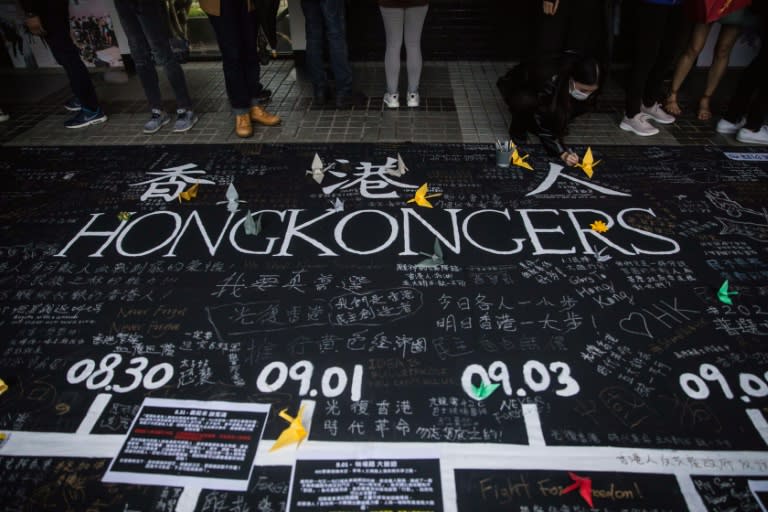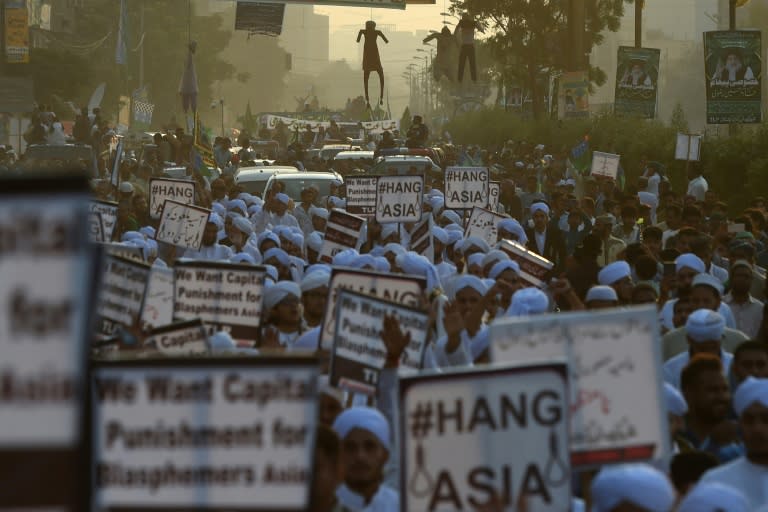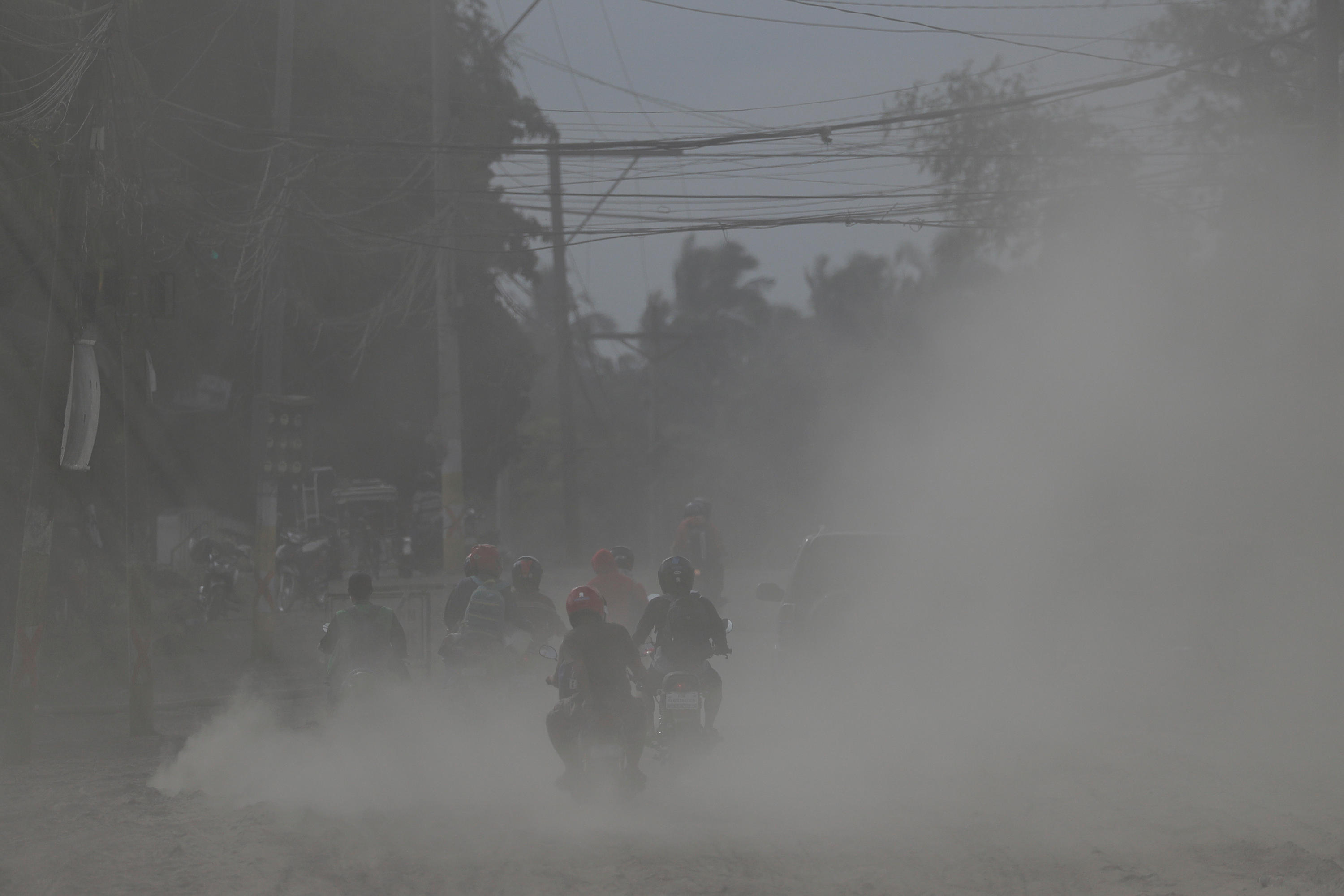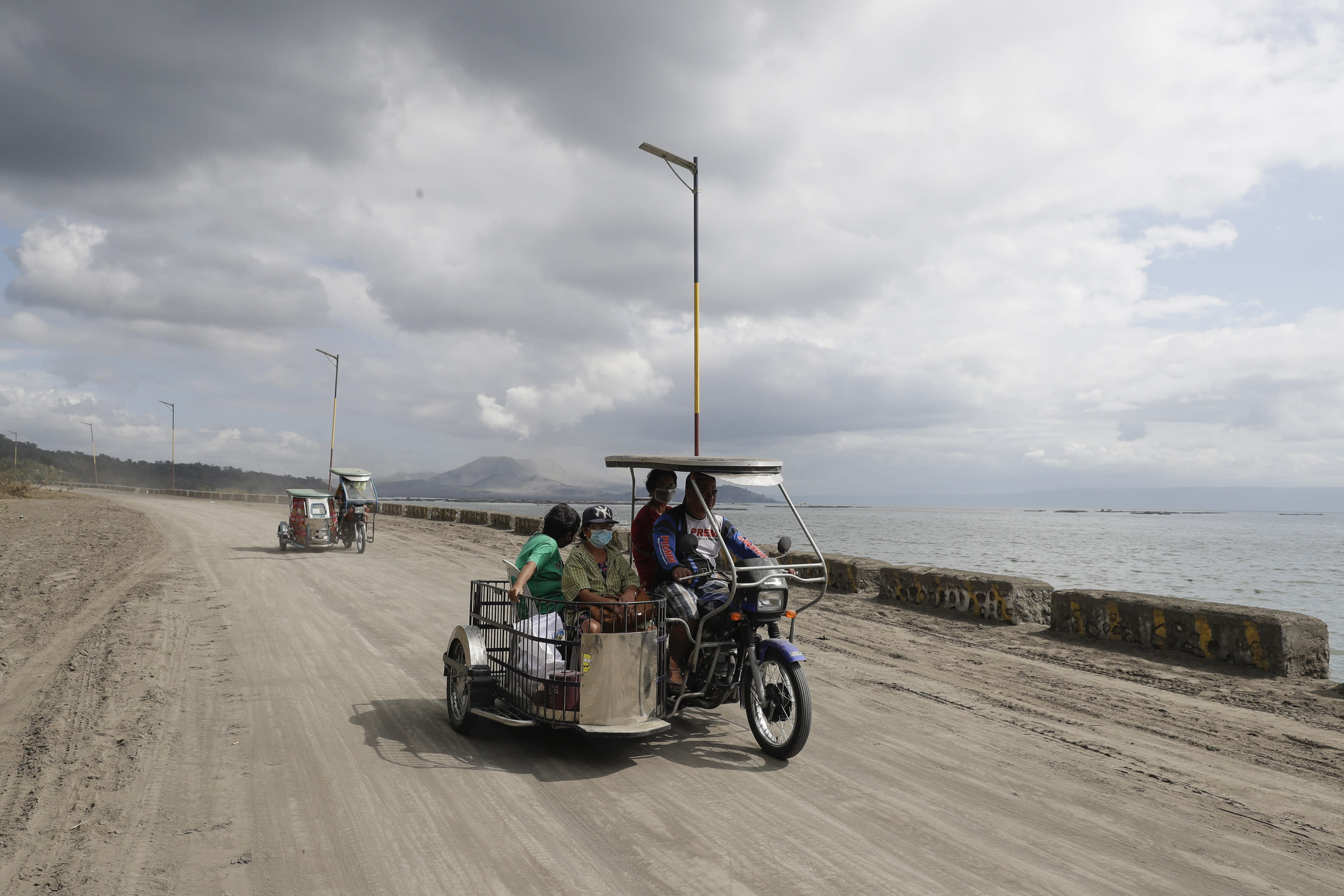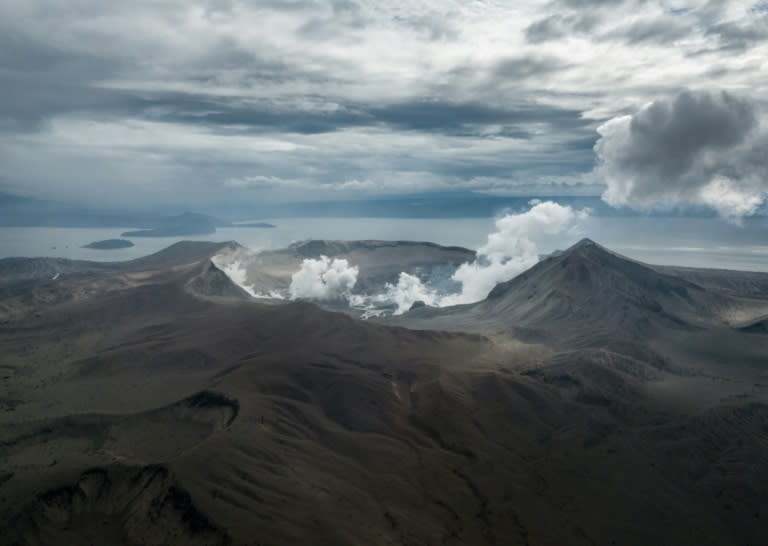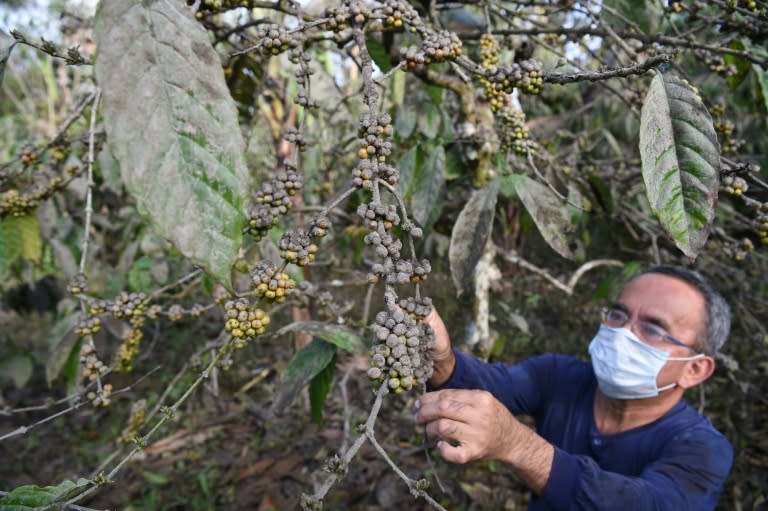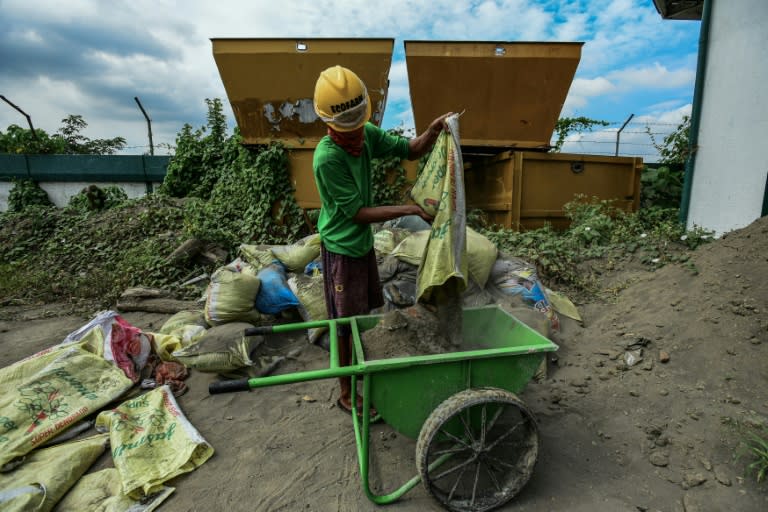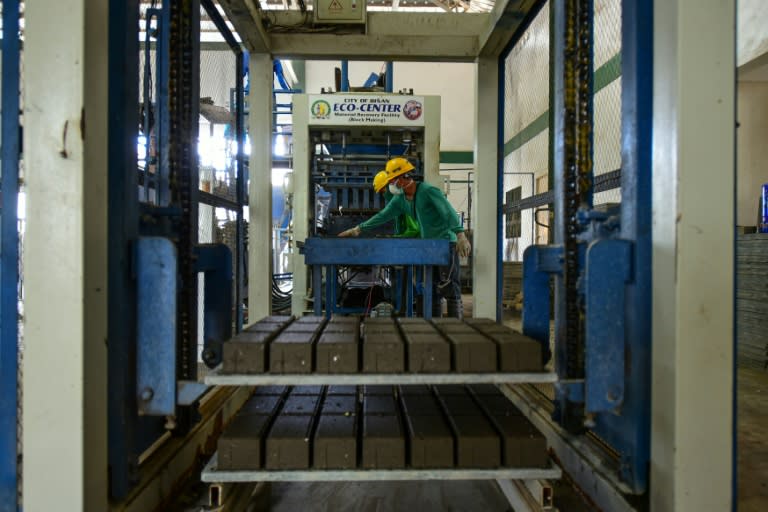AFP•January 17, 2020
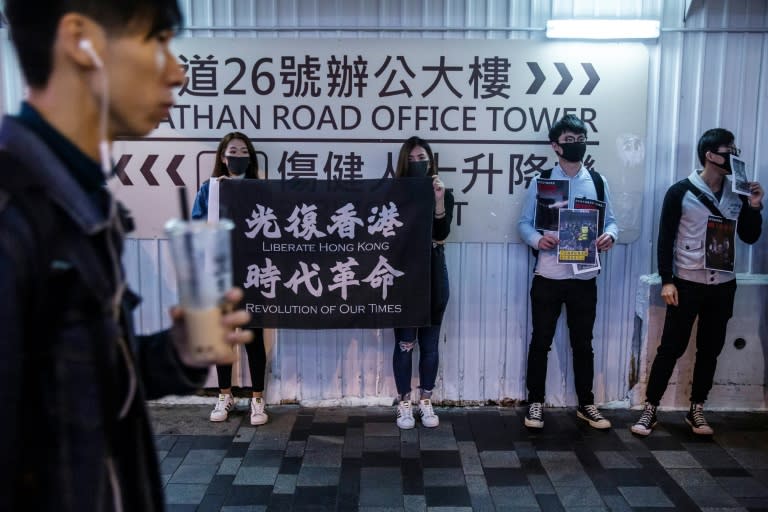
Millions have come out on the streets in Hong Kong since

Millions have come out on the streets in Hong Kong since
June in demonstrations sparked by opposition to a
now-abandoned proposal to allow extraditions to mainland
China (AFP Photo/ISAAC LAWRENCE)More
Beijing (AFP) - Protests in Hong Kong bear an "overwhelming" similarity to political unrest that has wracked Venezuela in recent years, Venezuelan Foreign Minister Jorge Arreaza said Friday.
Arreaza, who met his Chinese counterpart Wang Yi in Beijing Thursday, told reporters the pair had discussed similarities between "this attempt to establish a colour revolution in Hong Kong", and "what happened in Venezuela in 2014 and 2017."
"The similarities are overwhelming," Arreaza said.
Millions have come out onto Hong Kong's streets since June in demonstrations sparked by opposition to a now-abandoned proposal to allow extraditions to mainland China. These have since morphed into wider calls for greater democratic freedoms and police accountability.
The sometimes violent protests are the starkest challenge to Beijing since the former British colony was returned to Chinese rule in 1997.
Oil-rich Venezuela suffers from hyperinflation and shortages of basic goods from food to medicine, a crisis that has forced millions to flee the South American state since 2016.
The country, locked in an ongoing power struggle between President Nicolas Maduro and opposition leader Juan Guaido, has faced a series of mass protests since 2014.
China and several other countries including Russia support Maduro, and Beijing is one of Caracas's main creditors.
Arreaza, a member of Maduro's government, said that in Venezuela and Hong Kong "the violent tactics that the protesters claim as non-violent are the same, the pressure on the security forces is the same".
Beijing and Hong Kong's administration have refused to cede to the protesters' demands.
These include fully free elections in the city, an inquiry into alleged police misconduct, and amnesty for the nearly 6,500 people arrested during the movement -- almost a third of them under the age of 20.
Beijing (AFP) - Protests in Hong Kong bear an "overwhelming" similarity to political unrest that has wracked Venezuela in recent years, Venezuelan Foreign Minister Jorge Arreaza said Friday.
Arreaza, who met his Chinese counterpart Wang Yi in Beijing Thursday, told reporters the pair had discussed similarities between "this attempt to establish a colour revolution in Hong Kong", and "what happened in Venezuela in 2014 and 2017."
"The similarities are overwhelming," Arreaza said.
Millions have come out onto Hong Kong's streets since June in demonstrations sparked by opposition to a now-abandoned proposal to allow extraditions to mainland China. These have since morphed into wider calls for greater democratic freedoms and police accountability.
The sometimes violent protests are the starkest challenge to Beijing since the former British colony was returned to Chinese rule in 1997.
Oil-rich Venezuela suffers from hyperinflation and shortages of basic goods from food to medicine, a crisis that has forced millions to flee the South American state since 2016.
The country, locked in an ongoing power struggle between President Nicolas Maduro and opposition leader Juan Guaido, has faced a series of mass protests since 2014.
China and several other countries including Russia support Maduro, and Beijing is one of Caracas's main creditors.
Arreaza, a member of Maduro's government, said that in Venezuela and Hong Kong "the violent tactics that the protesters claim as non-violent are the same, the pressure on the security forces is the same".
Beijing and Hong Kong's administration have refused to cede to the protesters' demands.
These include fully free elections in the city, an inquiry into alleged police misconduct, and amnesty for the nearly 6,500 people arrested during the movement -- almost a third of them under the age of 20.
---30---

